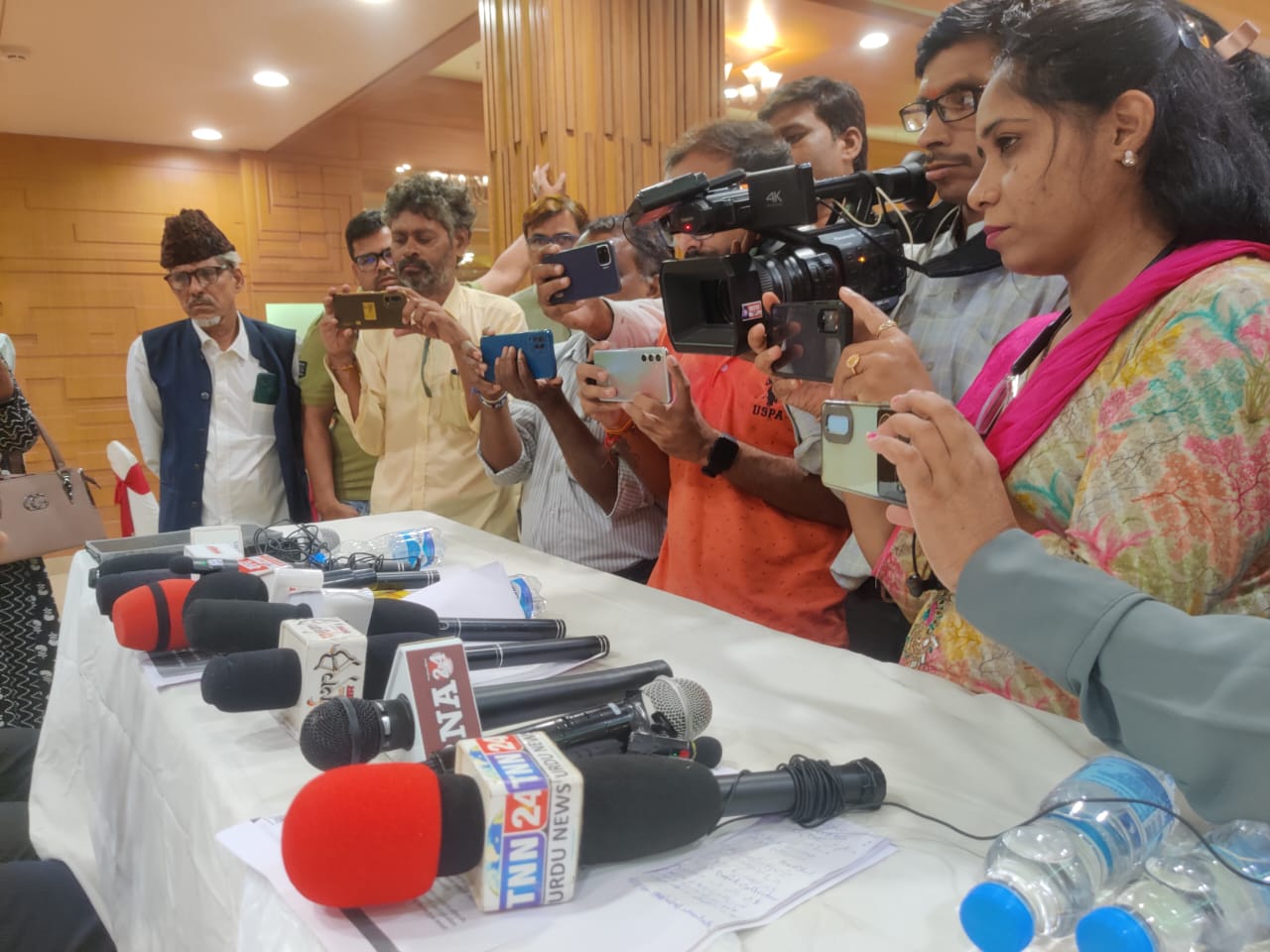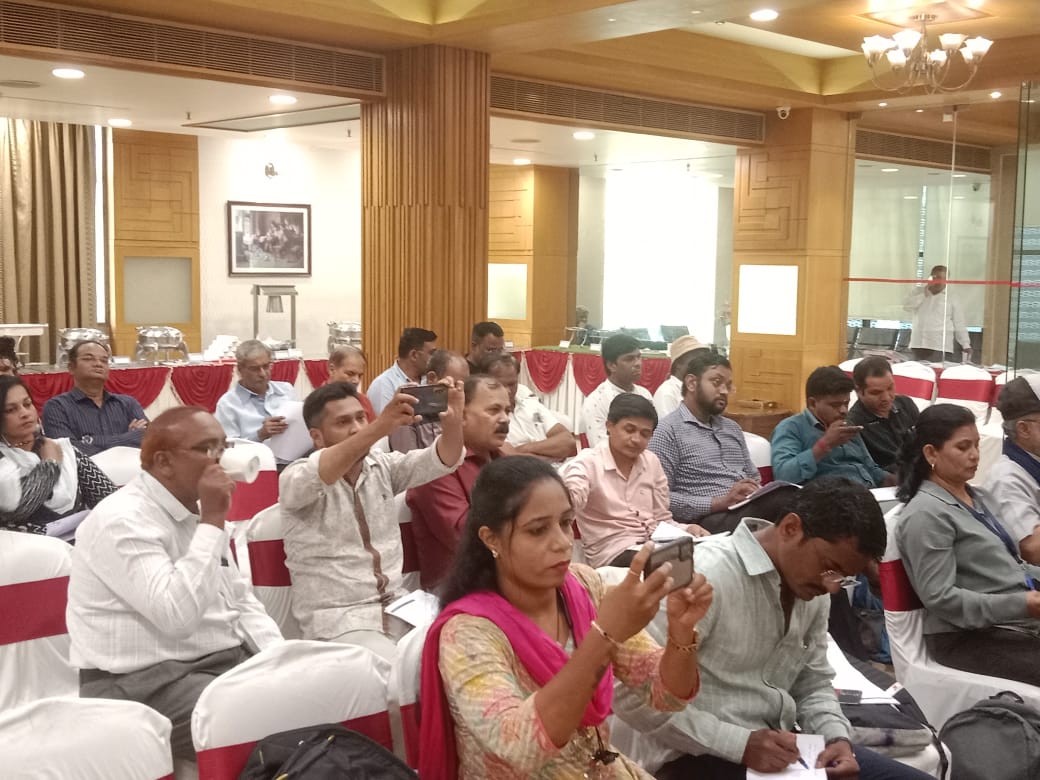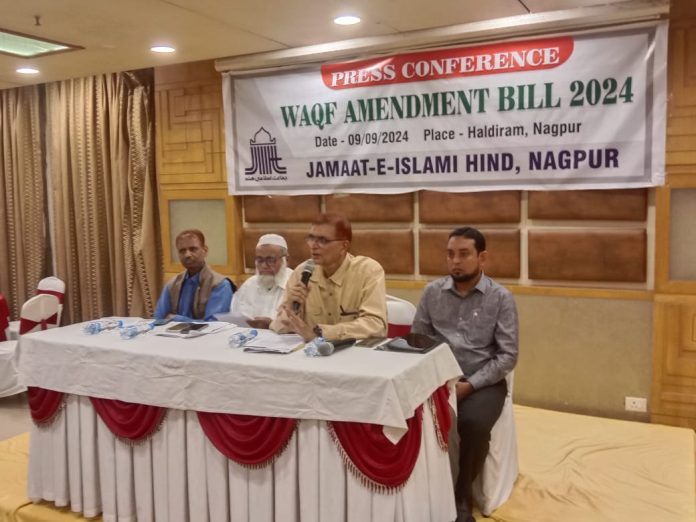Nagpur, Sep 10: Jamaat-e-Islami Hind (JIH), Nagpur, has strongly condemned the Waqf Amendment Bill 2024, calling it an orchestrated attempt to seize Waqf properties under the pretext of transparency and governance. At a press conference here Monday, speakers including Mr. Abdul Rauf, former CEO of Waqf Board (Maharashtra); Wahab Parkeh, founding member of All India Muslim Personal Law Board, and Umar Khan, Secretary of JIH Nagpur, addressed the media and demanded the bill’s immediate withdrawal.
Mr. Rauf criticized the bill’s provisions, stating they significantly alter Waqf governance structures. He highlighted the inclusion of non-Muslims in Central Waqf Council and Waqf Boards as direct violation of Article 26 of the Indian Constitution, which protects the rights of religious minorities to manage their own religious institutions.
 His concerns were echoed by Wahab Parkeh and Umar Khan. The panel compared the situation to that of Hindu religious trusts and Gurudwara management committees, which restrict membership to followers of their respective faiths.
His concerns were echoed by Wahab Parkeh and Umar Khan. The panel compared the situation to that of Hindu religious trusts and Gurudwara management committees, which restrict membership to followers of their respective faiths.
The proposed bill would replace elected Waqf Board members with government-nominated individuals and remove the requirement for the Waqf Board CEO to be Muslim. Additionally, it grants district collectors increased authority over Waqf properties, which the panel found troubling, citing recent incidents where Muslim properties were demolished under orders from such officials.
 Another key issue raised by Wahab Parkeh was the removal of Section 40 from Waqf Act of 1995, a clause that establishes the jurisdiction and authority of Waqf Boards. The panel warned that this would allow the government to seize control of longstanding Waqf properties, including mosques, dargahs, and graveyards, potentially leading to disputes and illegal occupations.
Another key issue raised by Wahab Parkeh was the removal of Section 40 from Waqf Act of 1995, a clause that establishes the jurisdiction and authority of Waqf Boards. The panel warned that this would allow the government to seize control of longstanding Waqf properties, including mosques, dargahs, and graveyards, potentially leading to disputes and illegal occupations.
Parkeh urged secular political parties, both within NDA and the Opposition, to come together and oppose the bill. The panel vowed to lead protests and pursue legal action should the bill advance, calling for unity among Muslims, other minority communities, and justice-minded citizens in defense of Waqf properties.
Concluding the press conference, the panel reaffirmed its commitment to using all democratic and legal avenues to resist what they described as a grave threat to Waqf properties across India.




